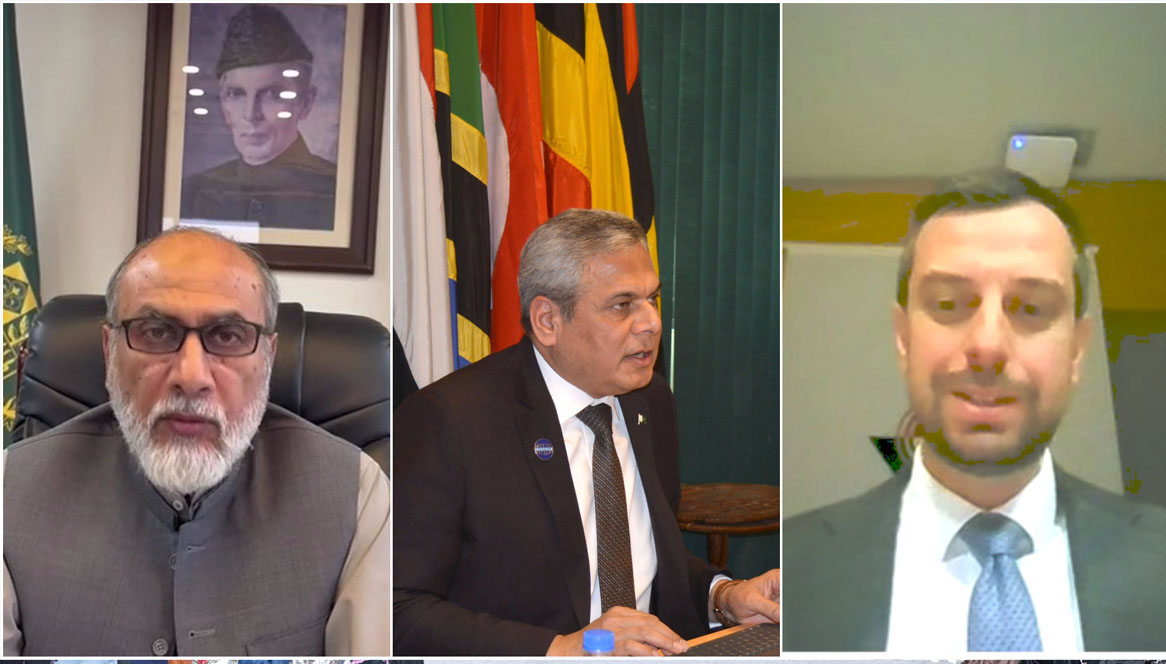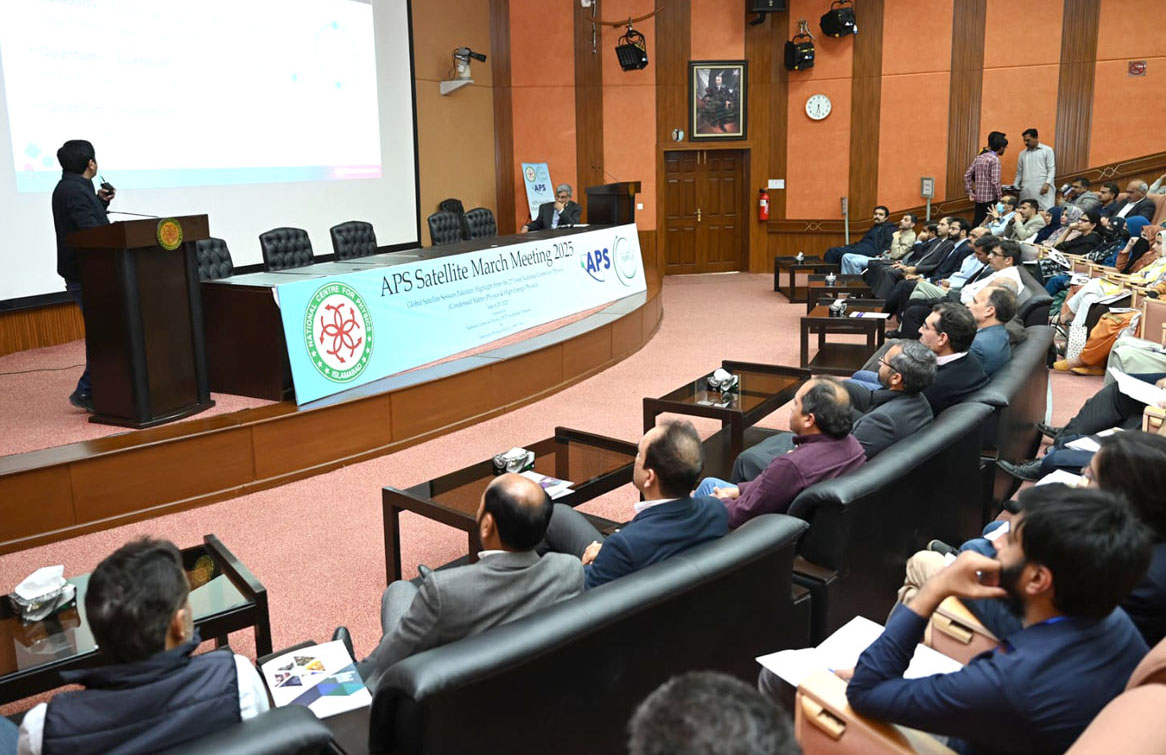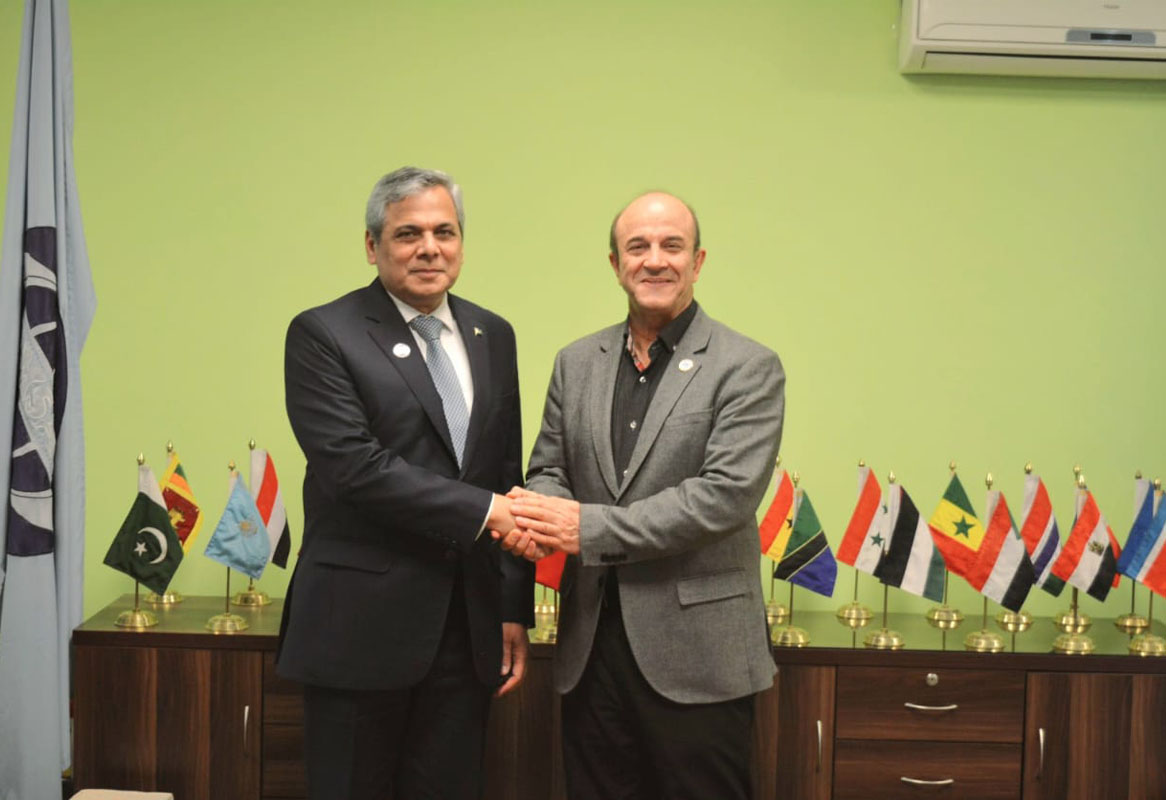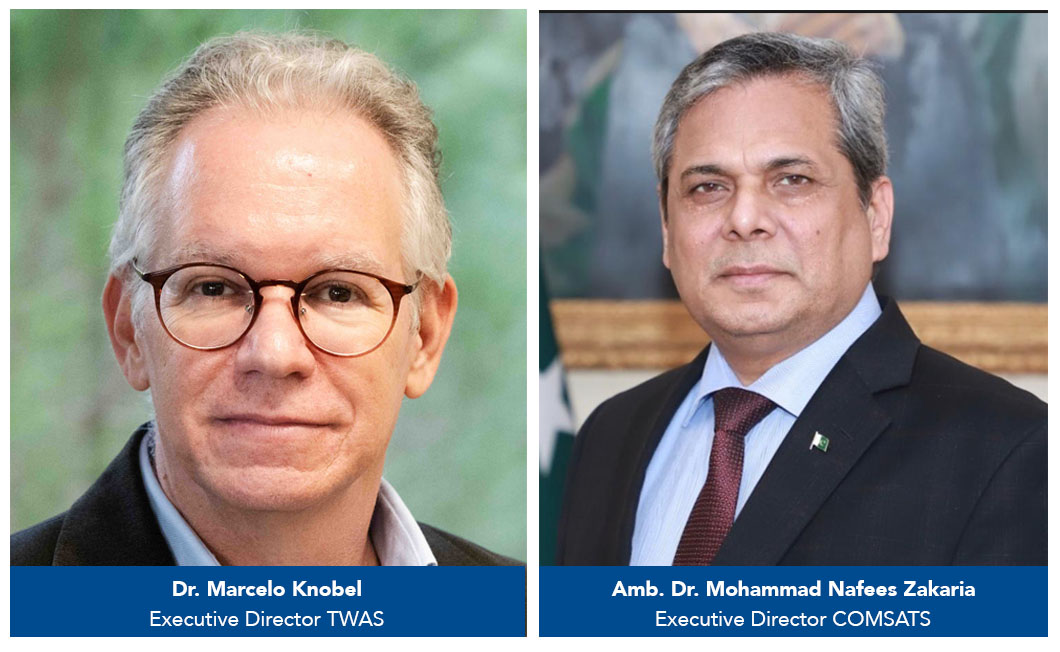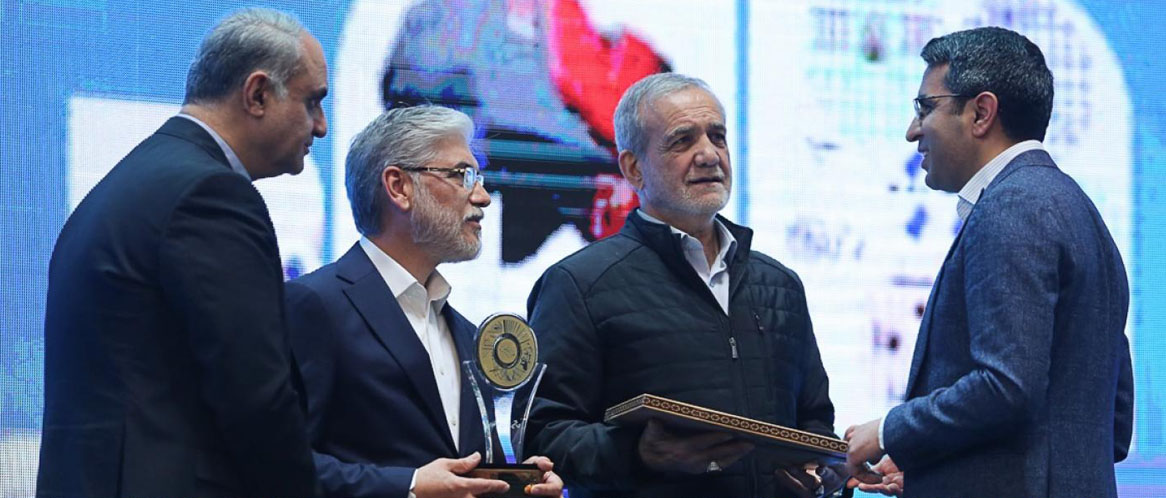November 15, 2024. On the fifth day of the 29th Conference of the Parties (COP29), the Commission on Science and Technology for Sustainable Development in the South (COMSATS) reaffirmed its commitment to advancing sustainable energy solutions by hosting a sideline event in partnership with the Islamic World Educational, Scientific, and Cultural Organization (ICESCO), Morocco.
The event, titled “Enhancing Multi-Stakeholder Collaboration for Advancing Emerging Energy Technologies,” was held at the ICESCO pavilion. It featured a panel discussion organized in collaboration with COMSATS’ Center of Excellence in Türkiye, the Scientific and Technological Research Council of Türkiye (TÜBİTAK); ECCO Think Tank, Italy; and the Food Security and Agriculture Centre of Excellence (FACE), a COMSATS partner from Pakistan.
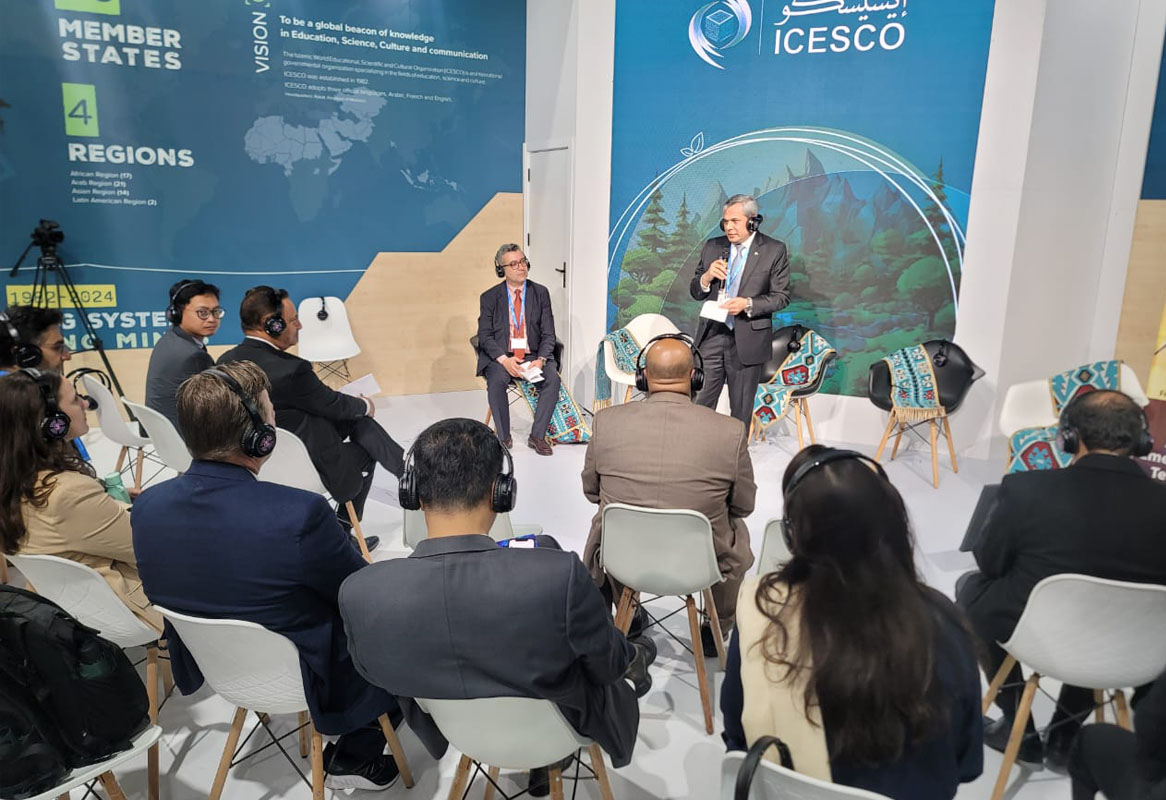
Ambassador Dr. Mohammad Nafees Zakaria, Executive Director of COMSATS, opened the session by emphasizing the urgency of transitioning to clean energy technologies. He highlighted the ongoing global reliance on fossil fuels, the often-overlooked contributions of military activities to carbon emissions, and the potential of mechanisms like carbon credits to support a sustainable energy transition.
Professor Dr. Raheel Qamar, Head of the Science and Environment Sector at ICESCO, provided insights into the opportunities and challenges of renewable energy. He pointed out limitations associated with photovoltaic systems, such as their short operational lifespan and potential to exacerbate local temperatures in regions like the Sahara. Dr. Qamar advocated for prioritizing more efficient energy sources, including geothermal and ocean wave technologies, over traditional renewables like solar and wind.
The discussion, moderated by Dr. Jauad El Kharraz, Advisor at ECCO Think Tank, convened an esteemed panel of experts, including: Mr. Hongpeng Liu, Director of Energy Division, UNESCAP; Mr. Mehmet Aslan, Director of TEYDEB, TÜBİTAK; Mr. Lincoln Teo, Founder of iWise; Dr. Baber Majid, CEO, National Information Technology Board (NITB), Pakistan. Panelists delved into pressing topics, such as fostering regional cooperation for advancing emerging energy technologies, overcoming barriers to market adoption of innovative solutions, and addressing the socio-economic implications of renewable energy transitions.
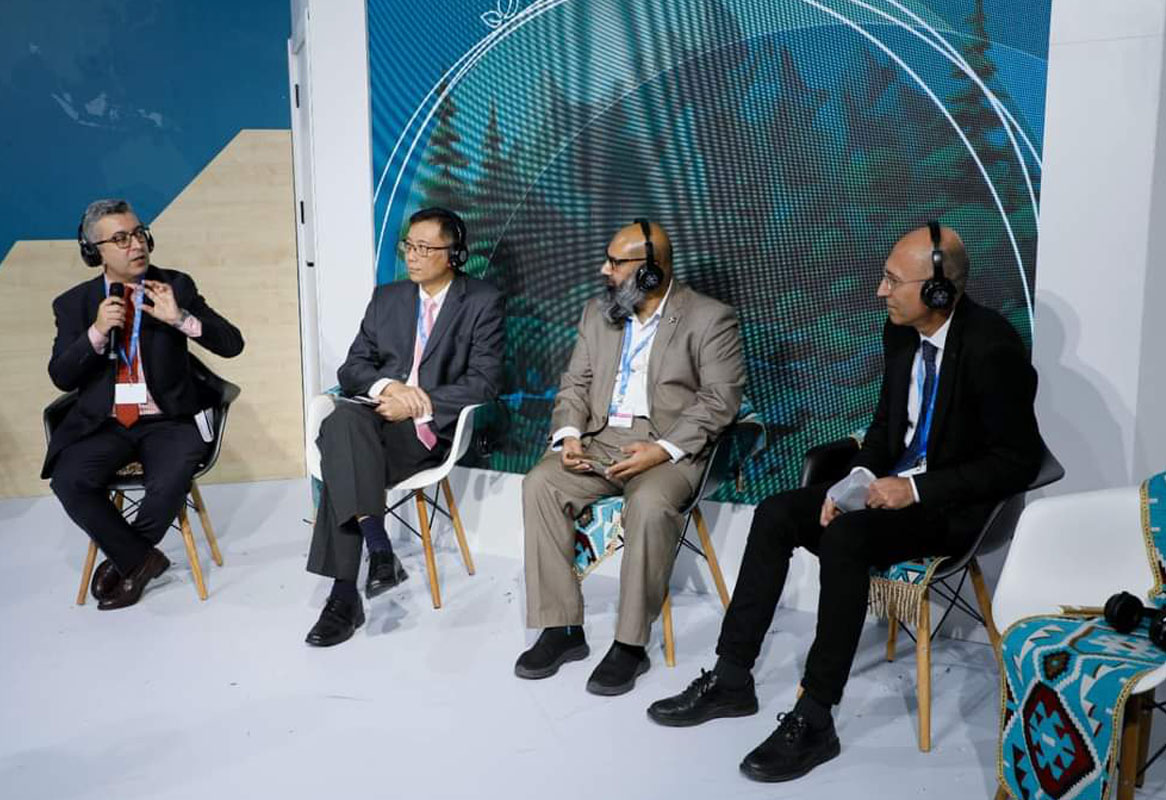
Dr. El Kharraz underscored the need for a just transition that equitably distributes the benefits and burdens of renewable energy projects, particularly for vulnerable populations. Mr. Liu stressed the importance of aligning policies across diverse economies to drive regional energy collaboration. Mr. Aslan explored strategies to mitigate infrastructure and cost barriers, while Dr. Baber Majid highlighted the role of industrial IoT and behavioral insights in accelerating decarbonization. Mr. Teo emphasized the need to foster public trust and acceptance to ensure the long-term success of emerging energy technologies.
The event concluded with a strong call for enhanced multi-stakeholder partnerships, cohesive policies, and innovative strategies to support the equitable adoption of sustainable energy technologies globally.

